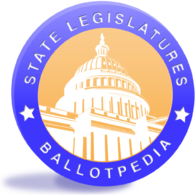Legislature
A legislature is a type of representative deliberative assembly with the power to adopt laws.
Legislatures are known by many names; the most common are parliament and congress, although these terms also have more specific meanings. In parliamentary systems of government, the legislature is formally supreme and appoints the executive. In presidential systems of government, like the United States, the legislature is considered a power branch which is equal to, and independent of, the executive. In addition to enacting laws, legislatures usually have exclusive authority in certain states to raise taxes and adopt the budget. Initiative and referendum are the methods available to citizens seeking to affect taxes and budgets in the states where that is permitted.
Chambers
The primary components of a legislature are one or more chambers or houses: assemblies that debate and vote upon proposed bills. A legislature with only one house is called unicameral. A bicameral legislature possesses two separate chambers, usually described as an upper house and a lower house, which may differ in duties, powers, and the methods used for the selection of members.
See also
Footnotes
| |||||||||||
